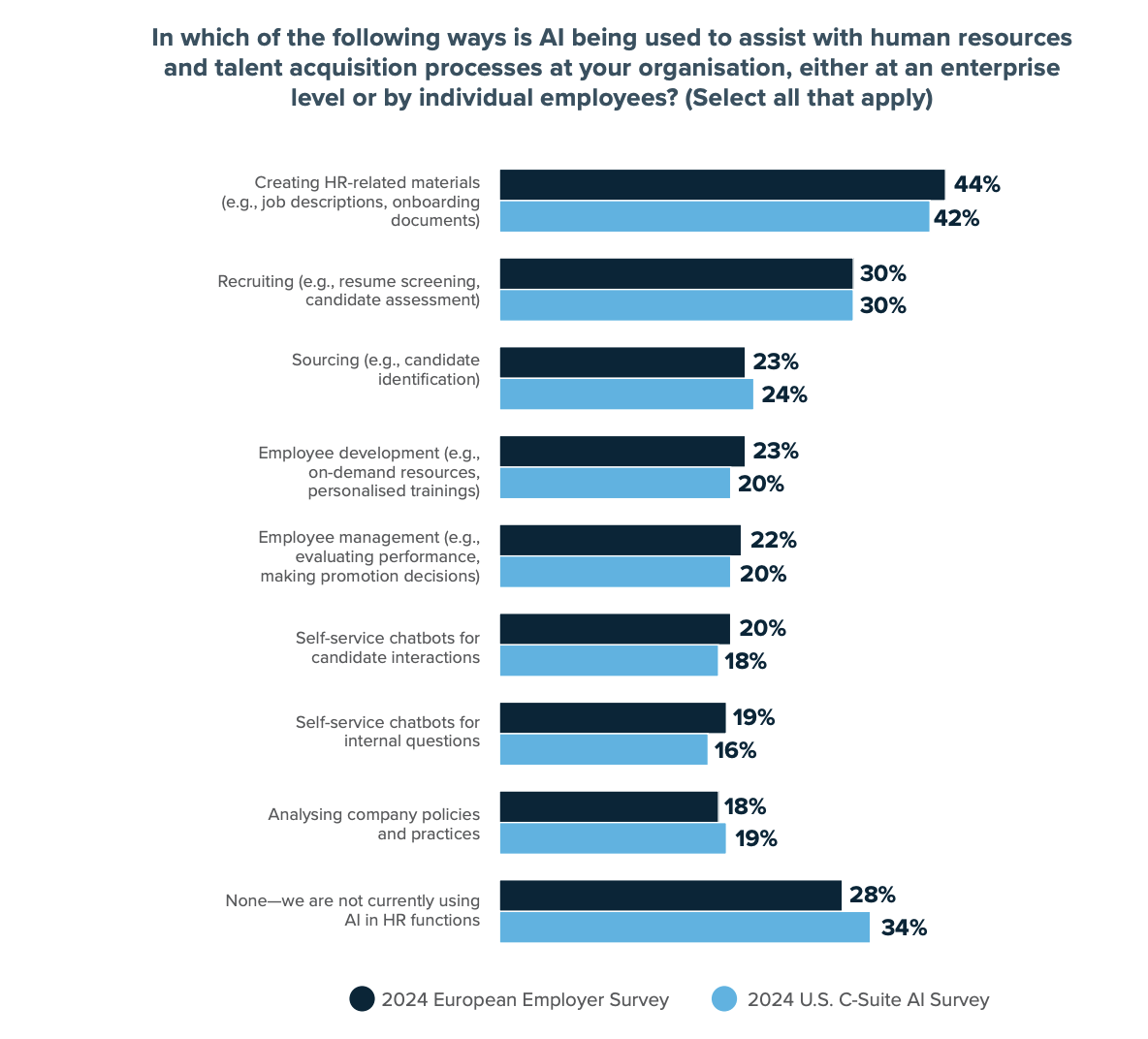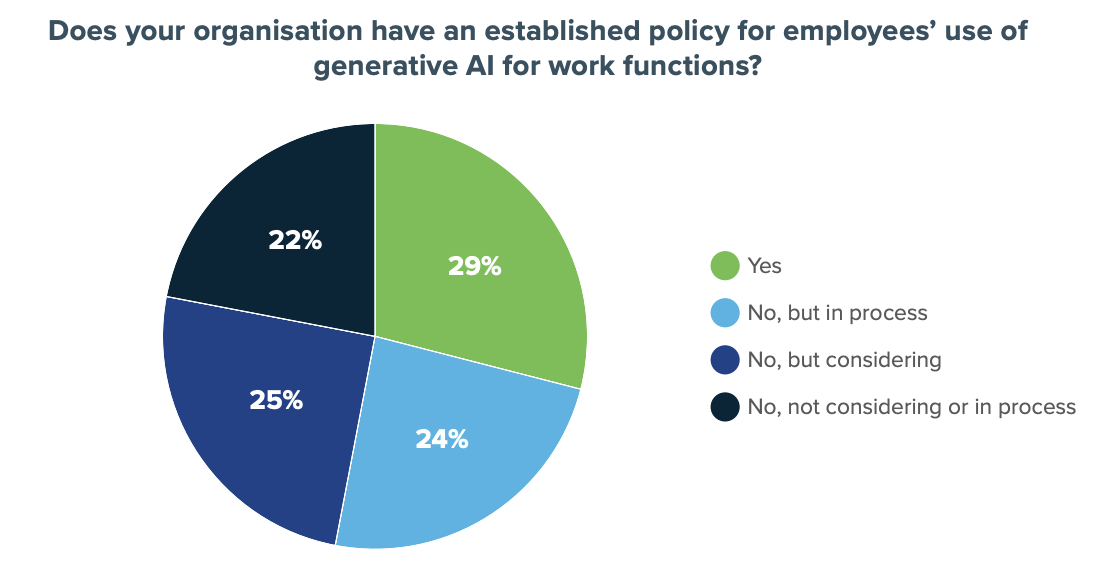
'Developing clear and thoughtful policies is crucial to mitigating risk'

Nearly three in four HR departments in Europe have begun adopting artificial intelligence in the workplace, according to a new Littler survey.
But the implementation is also introducing a series of challenges for organisations.
Littler's seventh annual European Employer Survey Report revealed that 72% of companies are now using AI in at least one HR function, much higher than the 60% in the previous year.

Source: Littler's European Employer Survey Report
But Littler noted that the expanding role of AI in HR not only offers opportunities to streamline processes, but also introduces compliance and workforce challenges.
Over half (53%) of HR executives and business leaders surveyed expressed concern about complying with data protection and information security laws when using AI in their HR functions.
Additionally, 38% of respondents are worried about AI's potential impact on job displacement, reflecting worldwide job insecurity concerns stemming from the emerging technology.
Generative AI, which has boomed since its introduction last year, also presents risks for employers, according to the report. Despite the potential advantages of these tools, only 53% of respondents felt confident that their employees were not misusing such tools.
Policies guiding employees on how to use GenAI can help, but only 29% of organisations have implemented policies governing their use, according to the report.

Source: Littler's European Employer Survey Report
"As generative AI use expands across European workplaces, developing clear and thoughtful policies is crucial to mitigating risk and deriving the most value from the technology," said Deborah Margolis, Littler Senior Counsel in the U.K., in a statement.
Margolis stressed that there is "no one-size-fits-all approach" to AI policy development.
"The most effective policies will be those that are tailored to an organisation’s broader business objectives, risk tolerance, and intended use cases," she added.